#impiety
Explore tagged Tumblr posts
Text
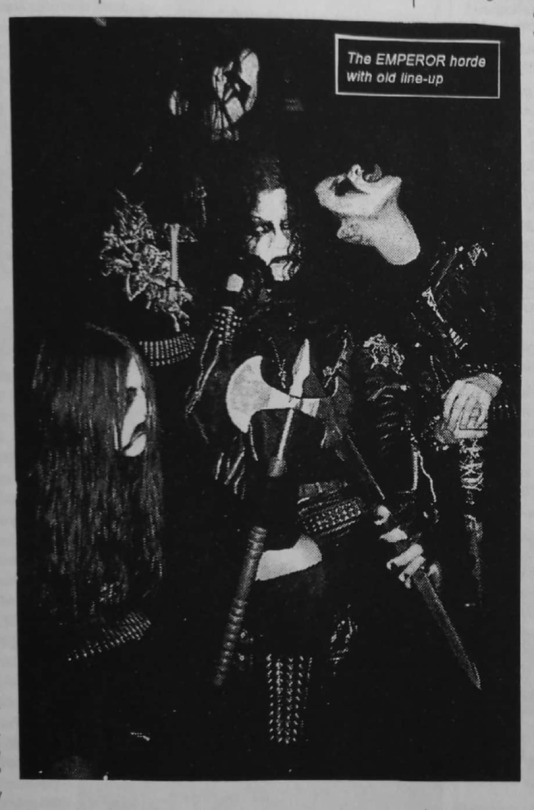




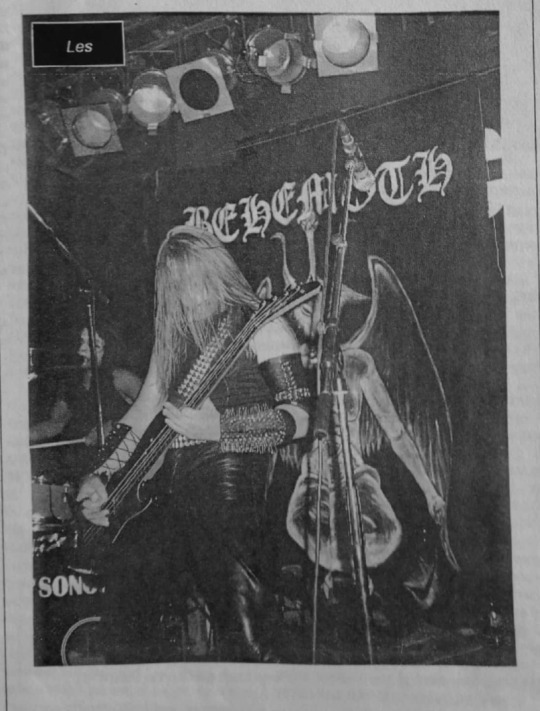
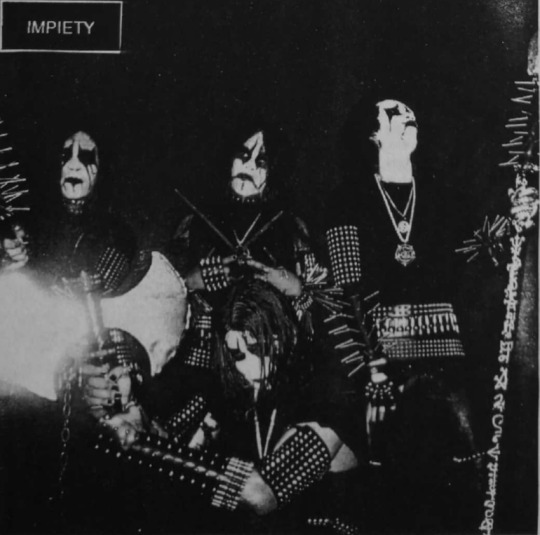

𝔭𝔥𝔬𝔱𝔬𝔰 𝔣𝔯𝔬𝔪 𝔨𝔦𝔩𝔩 𝔶𝔬𝔲𝔯𝔰𝔢𝔩𝔣!!! 𝔪𝔞𝔤𝔞𝔷𝔦𝔫𝔢 𝟏/𝟏𝟗𝟗𝟕 #𝟓
𝔟𝔞𝔫𝔡𝔰 𝔣𝔯𝔬𝔪 𝔱𝔬𝔭 𝔱𝔬 𝔟𝔬𝔱𝔱𝔬𝔪
𝔢𝔪𝔭𝔢𝔯𝔬𝔯
𝔴𝔞𝔫𝔡𝔢𝔯𝔢𝔯
𝔟𝔞𝔱𝔥𝔬𝔯𝔶
𝔪𝔞𝔯𝔡𝔲𝔨
𝔟𝔢𝔥𝔢𝔪𝔬𝔱𝔥
𝔦𝔪𝔭𝔦𝔢𝔱𝔶
194 notes
·
View notes
Text

#impiety#black metal#death metal#thrash metal#black death metal#bestial black metal#deathrash#Spotify
7 notes
·
View notes
Text

Phryne before the Areopagus by Jean-Léon Gérôme
#jean léon gérôme#art#phryne#areopagus#hypereides#robe#beauty#trial#impiety#acquitted#ancient greek#ancient greece#greek#greece#antiquity#classical#history#europe#european
104 notes
·
View notes
Text

"If a man, holding a belief which he was taught in childhood or persuaded of afterward, keeps down and pushes away any doubts which arise about it in his mind, purposely avoids the reading of books and the company of men that call in question or discuss it, and regards as impious those questions which cannot easily be asked without disturbing it - the life of that man is one long sin against mankind. 'But,' says one, 'I am a busy man; I have no time for the long course of study which would be necessary to make me in any degree a competent judge of certain questions, or even able to understand the nature of the arguments.' Then he should have no time to believe." -- William Kingdon Clifford, "The Ethics of Belief"
#William Kingdon Clifford#doubt#impiety#faith#faith is not a virtue#religion#ideology#religion is a mental illness
43 notes
·
View notes
Text

Sekt | Expiate In Purgatory | 2023
Australian Black Metal
A homage to 90's Australian Black Metal featuring Ex members of Tyrant, Dybbuk, Samain & Pagan.
#Sekt#Expiate In Purgatory#Australian Black Metal#Black Metal#Raw Black Metal#music#band#Tyrant#Dybbuk#Samain#Pagan#Louis Rando#The Furor#Impiety#Mhorgl#Depravity#Bandcamp
13 notes
·
View notes
Text

7 notes
·
View notes
Link
#Alcibiades#AncientGreece#Athens#impiety#lawyers#philosophy#Plato#Socrates#Socraticmethod#soldiers#Sparta#Xenephon
0 notes
Text
The Trial of Socrates
The Trial of Socrates is one of the most famous legal cases in ancient history. Socrates, a classical Greek philosopher, was put on trial in 399 BCE in Athens. He was charged with two main offenses:
Corrupting the youth of Athens: Socrates was accused of leading the younger generation astray by encouraging them to question established norms and authority, particularly the Athenian democracy.
Impiety (asebeia): He was also charged with disrespecting the gods of the city and introducing new deities. This accusation arose from his criticism of traditional religious beliefs and his promotion of more abstract philosophical ideas about divinity, including the concept of a singular, higher moral being or force.
The Context:
Athens had recently undergone political upheaval, including the fall of the Thirty Tyrants, a pro-Spartan oligarchy that briefly ruled the city before democracy was restored. Some of Socrates' followers, like Critias and Alcibiades, had connections to this oligarchic regime. This made him a controversial figure, even though he himself avoided political involvement.
The Trial:
The trial was held in front of 501 jurors, a large jury by modern standards. Socrates defended himself, but his defense was more of a philosophical discourse than an attempt to win the favor of the jury. He argued that he had done nothing wrong, suggesting that his mission of questioning others and seeking wisdom was a service to the city, not a crime. He even referred to himself as a "gadfly," a figure meant to stimulate the city to self-examination.
Rather than appeal to the jurors' emotions, Socrates remained defiant, claiming he had a divine duty to seek and speak the truth. His unwillingness to pander to the court likely contributed to his conviction.
The Death Sentence:
Socrates was found guilty by a narrow margin. After the guilty verdict, there was a second phase of the trial to determine his punishment. He sarcastically proposed that he should be rewarded with free meals for life, as a benefactor of the city. When pressed for a serious proposal, he suggested a small fine, which the jury found insufficient.
The jury ultimately sentenced him to death by drinking hemlock, a poison that induces paralysis and death. Despite offers from his friends to help him escape, Socrates accepted his fate, choosing to abide by the law even though he believed it to be unjust. His calm acceptance of death is famously depicted in Plato's Phaedo, where he engages in philosophical discussion with his friends until the moment of his death.
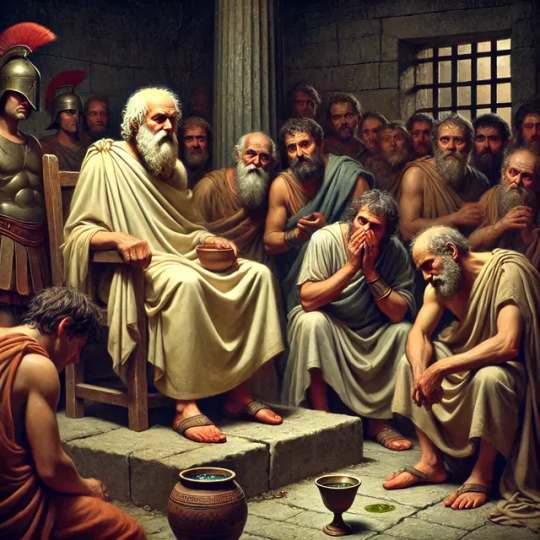
Socrates' trial and execution are often seen as a pivotal moment in Western philosophy, marking the conflict between free thought and democratic governance. His death also serves as a symbol of the risks involved in challenging societal norms and authority.
#today on tumblr#new blog#Socrates#TrialOfSocrates#Philosophy#AncientGreece#GreekPhilosophy#Plato#SocraticMethod#AthenianDemocracy#CorruptionOfYouth#Impiety#MoralIntegrity#SocialContract#Hemlock#PhilosophicalMartyr#WesternPhilosophy#Ethics#IntellectualFreedom#Justice#HistoricalTrials#PhilosophicalLegacy
1 note
·
View note
Text
"Skullfucking Armageddon"IMPIETY

シンガポールの悪魔と謳われるIMPIETYなんだけど、アルバム幾枚か聴いた感じでは大したことがないものも多い。ただ某メタル辞典のレビューと照らし合わせてみると、どうも自分はたまたま不調のアルバムばかりを引いてる嫌いもあるので、そのうち他のアルバム群もちゃんと聴いていかなければならない。例えば今回紹介するこの2ndアルバムなどは、素晴らしい部類に入る。ベスチャルウォーブラックの文脈で語られることの多いバンドだが、これはぶっちゃけ初期IMMORTALだろう。しかし原典が欠いている生々しさを併せ持っているのがこちらの最大の強みであり、ゆえにベスチャルウォーとして括られているものと捉えている。そしてオーラスに待ち受けているメタルパンク"Torment in Fire"は、全メタルヘッズ必聴の大名曲。ブルータルで生々しくとも、とてもキャッチー。灼熱の夏こそこういうメタルで乗り切りたい。大推薦盤。
0 notes
Text
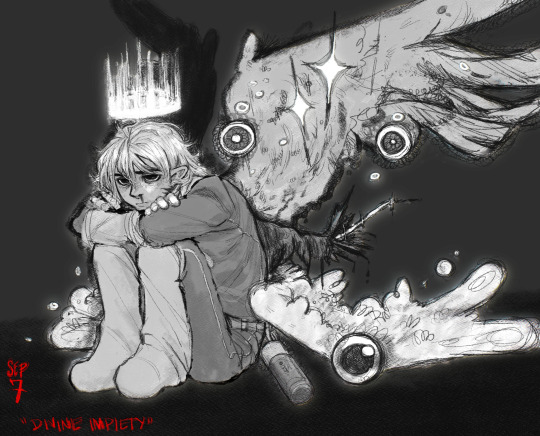
I can’t think of anything as impious as killing yourself whenever you feel like it lol
@surelysilly
#ok. so. I did this wrong.#I panicked bc I only got a little bit of time before the end of the day so I just ran with my first thought#but it ended up just bearly beifn considered a dpxspn on a technicality lol#ok so I didn’t see the slash between divine and impiety so I assumed that was the whole prompt#oh well.#so like. I guess the wings represent uhhh when he died the first time- when he intentionally killed himslef the second time- and finally#an amalgamation of all the times he kills himslef when he transforms#somethign abt the flippant disregard of his life seems umrn…not exactly holy lmao#danny phantom#skeh#9/7/24#superphantom#superphantomweek2024#dp x spn
712 notes
·
View notes
Text

{La princesse de La Manchaland}
#Limbus company#lcb#lcb rodion#lcb rodya#project moon#canto VII#canto VII spoilers ?#The princess of La Manchaland#fan art#digital art#my art#it’s been a while#not sure about the light#but I guess it’s still nice#she is so pretty#I had to draw something#art on tumblr#you know I find it interesting that Dulcinea and the other kindreds#were able to go against their father for their own children#maybe they could overstep the filial impiety because they also had to be loyal to their children#their responsabilty toward their children was stronger than the one for their father#I know there is a hierarchy#but maybe they took strenght from this#I find this fitting
231 notes
·
View notes
Note
Hello Mrs Reames! Quick question as someone that is still new to Alexander the Great, I was on TikTok the other day and someone posted a TikTok of an incident in which Alexander the Great supposedly dragged the oracle of Delphi out by her hair because she couldn't give him a prophecy that day, is this true?
Alexander and the Delphic Oracle
First, before answering, let’s do a quick PSA. I’m sure the asker meant to address me in the most polite way they knew how, and I’ve run into this error frequently with undergrads, who (at least in American public schools) are told to address a female teacher as “Ms.” or “Mrs.”
Thus, I offer this correction as gently as possible. But it’s important in an era when titles are being withheld from women as a means of belittlement—then, if a woman dares to object, they’re made fun of or called uppity and “sensitive.”* Again, I’m sure the asker here did not mean anything unkind (or they wouldn’t be asking me something in the first place!). So this is NOT a slap at them. But I’m not a Mrs. (I'm not married, and Reames is my birth name). I’m Dr. Reames or Professor Reames. You can even call me Jeanne (as long as you’re not a student in my class, ha). If you’re a (US) college student and unsure if your instructor has a PhD, “professor” is always safe. 😊
Now, to the question….
Plutarch tells a rather peculiar little story of new King Alexander, on his way home from a meeting of the Corinthian League (in Corinth), stopping at Delphi to ask the oracle a question. I should add, this event occurs right after Plutarch’s description of ATG’s meeting with the Cynic philosopher Diogenes. (E.g., it’s part of a “theme.”)
Now, the Delphic oracle wasn’t open for consults all the time. She only heard them a day or so a month…and that for only some months of the year. He came at the wrong time of year (winter, when Dionysos held the oracle, not his half-brother Apollo). So she told him, “No.” Reportedly, he stormed to her little house in the village of Delphi to manhandle her, intending to drag her to the oracle for his query. She replied, “Son! You’re invincible!” Pleased with that, he let her go.
And Plutarch presents this as if it’s all a-okay.
This is weird. It’s weird that Plutarch, a priest of Delphi from Chaironeia, wasn’t up in arms about this clear affront to an honored oracle (and an old woman). It’s an act of asebia (impiety). But it would be even weirder if Alexander had actually done it. Alexander, the uber-pious.
Plutarch is the ONLY one to tell this story. Anywhere.
Yet there’s a story remarkably like it with different players set during the Third Sacred War when the Phokians had seized the Oracle. It’s this event that set off the war, and which brought ol’ Philip into southern politics and eventually landed him a seat on the Amphictyonic Council as a staunch “Defender of Apollo.” Philomelos was the leader of the Phokians early in the war. Below are both accounts, starting with Diodoros’s (original source likely Kallisthenes, who wrote a history of the war).
With the oracle in Philomelus’ hands, he instructed the Pythia to continue prophesying from the tripod in the traditional way. When she refused, he threatened her and compelled her to mount the tripod. To this display of excessive force, she responded by declaring that he could do whatever he wanted—and he was pleased by this and declared that he had the oracle that suited him. He immediately had the oracle inscribed and set up for all to see, in order to make it clear that he had the god’s permission to do whatever he wanted, and he convened an assembly at which he boosted morale in the ranks by telling them about the prophecy (Diod. 16.27.1-2, Waterfield trans).
And now, wishing to consult the god concerning the expedition against Asia, [Alexander] went to Delphi; and since he chanced to come on one of the inauspicious days, when it is not lawful to deliver oracles, in the first place he sent a summons to the prophetess. And when she refused to perform her office and cited the law in her excuse, he went up himself and tried to drag her to temple, whereupon, as if overcome by his ardour, she said: “Thou art invincible, my son!” On hearing this, Alexander said he desired no further prophecy, but had from her the oracle which he wanted (Plut. Alex. 14.4, Perrin trans.)
With Philomelos, there is no question later in Diodoros that his act was impiety. His eventual death is (partly) attributed to it. Plutarch picks up this event, dusts it off, recasts the “inquirer,” and—moreover—uses it as affirmation of Alexander’s “invincibility.” Remember “The Invincible” was his nickname in Greece in his own day. The Romans called him Magnus (the Great).
In short, Plutarch retooled the story to suit his own purposes.
So no, it never happened. At least, not with Alexander. (And he’d have been horrified, I think, to hear he’d been accused of any such thing.)
Plutarch makes these detail changes when it suits him. I have an article coming out in a year or so where I discuss this tendency and bring the receipts (of quite a few examples)—including one I think a lot of folks here will find VERY interesting. But I’m not the only one saying it about this event in particular. It’s been noted as an “odd” episode before, including by Hamilton, if I recall (who did the commentary on Plutarch). But Lara O’Sullivan really showed where it came from, source-wise, in her “Callisthenes and Alexander the Invincible God,” P. Wheatley and E. Baynham, eds., East and West in the World Empire of Alexander: Essays in Honour of Brian Bosworth. Oxford: Oxford Univ. Press (2015), 35–52.
Some may still wonder why Alexander wouldn’t have gone to the oracle?
He didn’t need to. His father already had. And if later historians (such as Diodoros) reinterpreted her pronouncement to be about Philip’s murder, not the fall of Persia, it was a positive reply at the time. Going to Delphi again might risk something less flattering/hopeful. Not to mention, it was the wrong time of the year, and Alexander knew that. He had more important fish to fry. He wasn’t going to hang around, waiting (for months) for an auspicious day.
He was good with the oracle his father had got. After all, he’d been trumpeting for months that “only the name of the king had changed.” The original oracle would do just fine.
------------------------
*A BIG stink was made here in the US by the conservative media over Dr. Jill Biden being “Dr.” The initial "rebuke" stemmed from the fact her degree is “just” a doctor of education. When that faced pushback, however, conservatives on social media began to fuss, well, she wasn’t a MEDICAL doctor, so didn’t “deserve” that title. Which is silly. Doctor is the correct title for a medical doctor, as well as for a host of professional degrees, including a doctor of education, a doctor of theology, a doctor of business, etc. The degree that takes the longest to complete is the PhD, or doctor of philosophy. We’re ALL “doctors.” The problem for them was a professional woman who dared to use her title. Wasn’t she an uppity bitch?
#Alexander the Great#asks#Delphic Oracle#Alexander and Delphi#The Third Sacred War#Classics#Plutarch lies#Diodoros#Philomelos#ancient Greece#asebia#impiety in Greek religion#ancient Macedonia#tagamemnon
23 notes
·
View notes
Text
FINALLY IM DONE WITH SOME NEW ELSEN OCS REFS... HERE THEY ARE :D



More about them below!!! (it's not fully done tho, is just some idea of how they are)
Mariel: Psychologist in zone 2. Her job is somewhat stressful, as she sometimes (though rarely) happens that her patient becomes Burnt and she has to start the module to get rid of it. She has became somewhat used to it, though she has become somewhat more irritable.
Personality: Reserved, Professional, easily annoyed/not very patient, somewhat traumatized, straight to the point, high chance of becoming Burnt.
Mimo: Elsen without mouth that is totally mute, but, always looking to bring out a smile and happiness. He has a happy attitude. Still, many times it doesn't work and he gets silently depressed :(. He is from zone 2, and knows sign language.
Personality: Silly, curious, wants to make people laugh, mute, can get into trouble accidentally, somewhat depressed.
Selsen: Joke character. Don't know where he was born or appeared. He is a round-headed Elsen who is almost the opposite of all elsen. He is hyperactive and chubby, plus he doesn't pay much attention to the guardians. For some reason, he is able to go from zone to zone and always gets into/stuck in places he isn't meant to be. His body is very squishy and he is very silly.
Do NOT give him sugar please
Meriam: Spectre who is unable to leave her dead body after drowning. Defensive and easily upset, she also seems to forget things easily, so she is constantly lost. Still, she is mostly docile...
Personality: Skittish, defensive, ashamed, easily stressed, lost, forgets easily.
The gardener: Elsen from Zone 3 who got stuck in Zone 4 [IMPIETY AU THING]. He believes that all spectres are good thanks to the idea that Enoch implanted in him in Zone 3. A Ghoul took advantage of it to get new victims, so he only asks "favors" to the Elsen to grow his flowers (which is some purple ones), and give it to some Elsen who comes by where they are, and then bring them to the ghoul afterwards. The flower has a highly deadly disease that literally makes flowers grow rapidly on Elsen's body, extracting their energy, so the ghoul has an easy prey. The ghoul rewards him with sugar. He is very dependent on sugar.
Personality: Manipulative, pretends to be cool, delusional, meticulous, transtornated
57 notes
·
View notes
Text

You know who else will be dead soon enough? Your son.
#if i were an ancient greek i’d be charged with 22 million counts of impiety btw#the song of achilles#reading challenge 2024
5 notes
·
View notes
Text
*looks at Esus* what the fuck are you
#slight joking impiety lol#im reading up on stuff for starting in gaulpol and#i have no idea what to make of the man#i genuinely cannot figure out what he was
0 notes